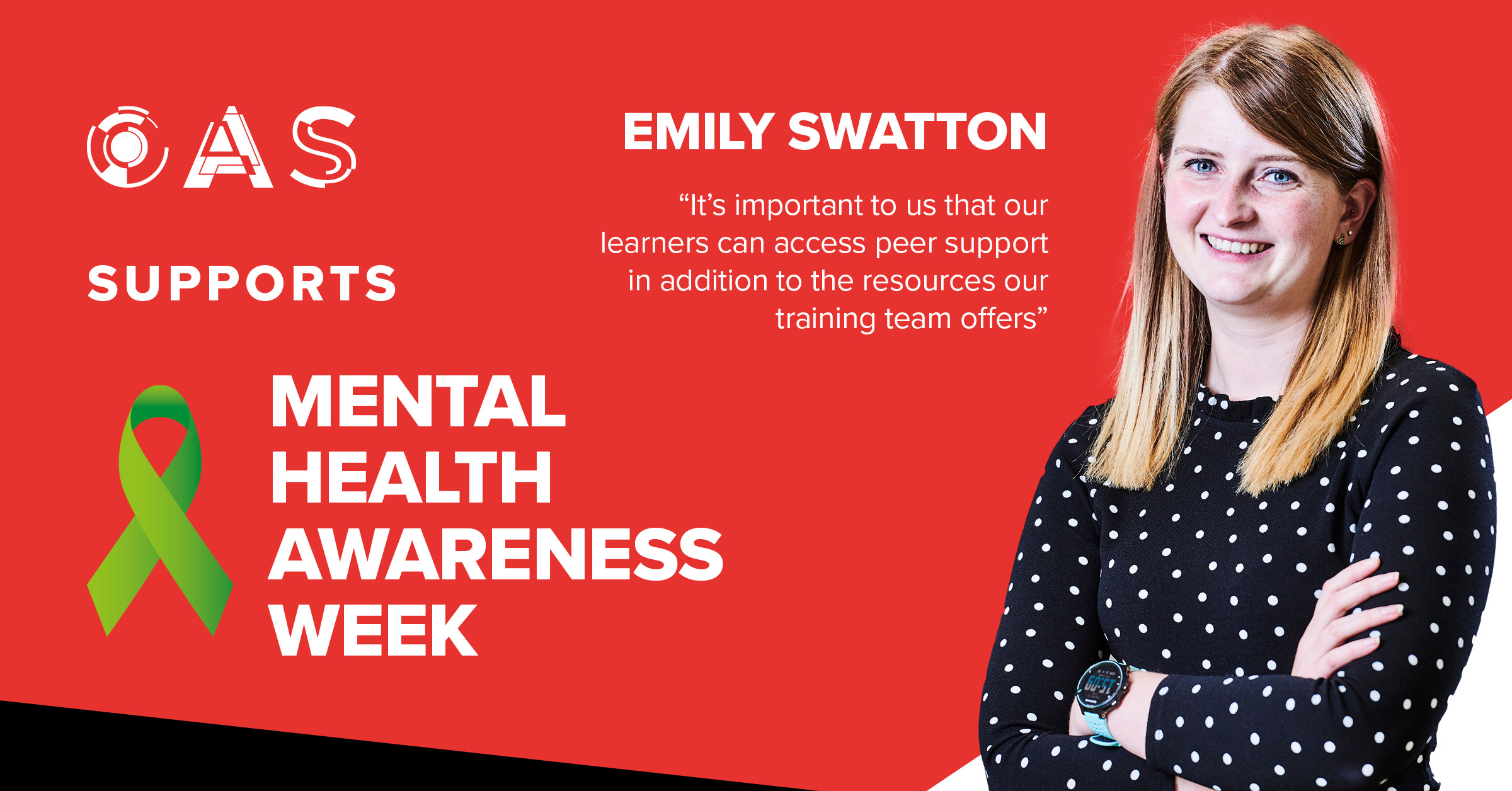Meet our Wellbeing Champions!

MTC Apprenticeships is the training provider responsible for delivering apprenticeships and workforce upskilling at OAS. The MTC’s network of Wellbeing Champions was established in 2019 and has since grown to include over 40 people. They’re available to help any of our learners and colleagues by offering confidential conversations and support, and signposting additional guidance and resources so people can access a bit of extra help quickly and easily. They also run a programme of regular events that provide a safe space to talk, to raise awareness about the importance of mental health, and to normalise honest conversations about how we’re all feeling.
We talked to some of our Wellbeing Champions about what they do, how people can access their support, and why talking about mental health is so important.
What is a Wellbeing Champion?
Lara: We’re people with some more knowledge and insight into mental health than the average person, with good listening skills, who can offer support and provide guidance on how to find further support
Helen: And we’ve all developed our skills further through Mental Health First Aid training. We’re predominantly there to listen and signpost – we’re not trained counsellors, but we do have a vast array of information and knowledge to hand. For me, the Mental Health First Aid course added to my knowledge and provided me with a framework to help with conversations and signposting helpful resources.
Emily: Both colleagues and learners can be Wellbeing Champions, as well as using the support network. It’s important to us that our learners can access peer support in addition to the resources our training team offers, and of course it’s a useful extra skill set for apprentices to take back into industry.
How can someone contact a Wellbeing Champion?
Emily: For our learners, the list of Wellbeing Champions is communicated regularly by email and via our Teams channels as well as on the notice boards and information screens throughout the training centres, and forms part of our enrichment programme. Our colleagues can also see the team on our company intranet.
Rob: When we’re onsite, we’re also very easy to spot because we all wear a bright green lanyard!
Lara: Once they’ve chosen someone they’d like to speak to, they can contact us by email, phone, via Teams, or of course face-to-face when we’re onsite – however feels most comfortable to them really.
Olivia: We also host regular coffee mornings and evening sessions where anyone can drop in for a chat, and we pop into other team’s meetings to remind everyone that we’re here to offer a supportive ear and that they can reach out to us whenever they like. Recently of course this has all been done virtually, but when we’re onsite it happens in person too.
How can a Wellbeing Champion help?
Helen: We’re here to support any learner or colleague with any mental health query – this could range from a manager who wants to increase their awareness so they can support a team member, to an apprentice who is experiencing poor mental health, or a colleague who is worried about a friend or family member… whatever the reason, and whatever their journey – we’re here.
Olivia: Sometimes just having someone to listen is all we need – Wellbeing Champions can help by simply being that supportive ear. We will listen and communicate with anyone who approaches us in a totally non-judgemental way, and we’ll encourage appropriate support if we feel it’s necessary and point them in the right direction so they can investigate and access it easily and confidentially.
Rob: That’s right, and sometimes just a social chat changes people’s perceptions with a little reframing. We’re here for people to reach out to us to talk about how things are with them – and it can be about anything, we’re not just work-focussed.
Why is it important to talk about Mental Health?
Helen: Having personally dealt with anxiety and stress, and supported those with a mental health diagnosis in my personal and professional life, I know just how important it is to support others. Just like physical health, our mental health can deteriorate and this can happen at any time, and just because we can’t see it doesn’t make it any less real.
Lara: I agree, mental health is something that’s common to everyone – we all have mental health, just the same as we have physical health, and that needs to be destigmatised. Normalising talking about mental health will encourage more people to seek help earlier and ultimately will help to improve everyone’s mental health in general.
Olivia: And whilst society has already come a long way in talking about mental health more openly, I think it’s still a bit taboo. It’s also very easy to shut down the question ‘How are you?’ with a quick ‘I’m good’ or ‘I’m fine’ instead of being comfortable talking about how we actually feel. Asking someone the question ‘But how are you really?’ can encourage someone to feel it’s alright to open up. It is always okay to not be okay, and I think it’s so important to recognise and remember that.